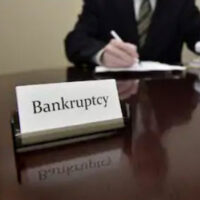High-Income Individuals and Consumer Bankruptcy

Many people assume that consumer bankruptcy is only a step that a person or married couple will take when they have low wages and limited assets, or after they lose their job and do not expect to be able to make regular payments to creditors and debt piles up. Yet there are many circumstances in which high-income individuals may also consider consumer bankruptcy and ultimately may file for a reorganization bankruptcy in South Florida. Are you a high earner but you need help considering your bankruptcy options? One of the experienced West Palm Beach bankruptcy lawyers at our firm can assist you.
Why Do High-Income Individuals File for Bankruptcy?
It might not immediately make sense that a high-income individual would need to consider bankruptcy, but there are various circumstances in which this happens. Most often, a high earner will accrue such a substantial amount of debt that even a high salary cannot allow them to repay the amount of money they owe. In some cases, a high earner might invest in an expensive home that loses value, a planned investment might not come to fruition, or their business might lose money for one reason or another. In short, it is possible to have so much debt that you cannot make the regular payments you have promised even if your salary is significant. In such circumstances, bankruptcy might become a consideration.
Understanding Bankruptcy Options for High Earners
What bankruptcy options are available to high earners? In general, only reorganization bankruptcy will be an option.
In order to qualify for Chapter 7 bankruptcy — liquidation bankruptcy — a debtor must prove that they can pass the “means test,” which requires showing that their income and assets are low enough that a liquidation bankruptcy would not constitute abuse of the bankruptcy system. Accordingly, Chapter 7 bankruptcy is not usually an option for a high earner.
Instead, a high earner considering bankruptcy will typically file for either Chapter 13 bankruptcy or Chapter 11 bankruptcy — both reorganization bankruptcies — depending on the total amount of debt they owe and that they want to reorganize through the bankruptcy process. In a reorganization bankruptcy, a debtor creates a repayment plan through which they repay their existing debt over a significant period of time (three to five years in a typical Chapter 13 case, for example). At the end of that period, certain remaining debts could be eligible for discharge.
Contact Our West Palm Beach Bankruptcy Attorneys Today
When you have any questions about filing for consumer bankruptcy, it is important to seek legal advice about your particular financial circumstances. While there is a common assumption that bankruptcy is only for individuals with limited assets or low wages, but as we have explained, there are often circumstances in which even high earners will want to consider bankruptcy. If you want to learn more about a reorganization bankruptcy and your options, an experienced West Palm Beach bankruptcy lawyer at Kelley Kaplan & Eller, PLLC can speak with you today. Contact us to learn more about the bankruptcy services we provide to clients in South Florida.
Source:
law.cornell.edu/uscode/text/11



